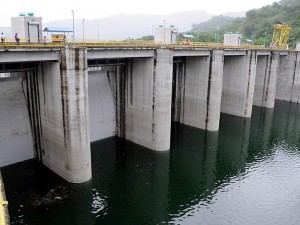Gov’t urged to set up unit to protect investments

San Roque Power was invited by the government to invest in a hydropower plant in the late 1990s, and was provided with the incentive that all capital goods could be imported duty-and tax-free. The power firm filed for a refund in 2003 and was allowed to claim it. But in 2013, the Supreme Court overturned the decision of the CTA, explaining that San Roque Power was ineligible to claim the refunds “based on technicalities.” INQUIRER FILE PHOTO
MANILA, Philippines—Local and foreign business groups are pushing for the creation of an Office of Investor Protection to help safeguard long-term productive investments from “technicalities” that often delay or block the issuance of refunds and other critical incentives to the private sector.
At the same time, the proposed government office will help investors cut through the layers of bureaucracy across government agencies.
The Joint Foreign Chambers, the Makati Business Club, the Philippine Chamber of Commerce and Industry and the Information and Communication Technology-Business Processing Association of the Philippines said in a statement Wednesday that what is crucial is not just having an incentive package for investors, but, more importantly, to actually deliver these perks to the private sector.
Based on their dialogue with the heads of both chambers of Congress this week, the groups said that there are sufficient examples where investors, a decade after having invested in the country, would win cases at the Court of Tax Appeals against the Bureau of Internal Revenue, but would then be shortchanged when the Supreme Court overturned the decisions.
This, the groups stressed, left the business community confused, depriving some investors of the promised value added tax refund, such as in the case of San Roque Power.
San Roque Power was invited by the government to invest in a hydropower plant in the late 1990s, and was provided with the incentive that all capital goods could be imported duty-and tax-free.
The power firm then filed for a refund in 2003 and was allowed by the CTA to claim it. But in 2013, the Supreme Court overturned the decision of the CTA, explaining that San Roque Power was ineligible to claim the refunds “based on technicalities.”
Meanwhile, the business groups also expressed its full support for House Resolution No. 1, which would address the limiting economic provisions of the Constitution, as well as for the Rationalization of Fiscal Incentives.
The groups likewise noted that there was no need to amend the Electric Power Industry Reform Act (Epira) to make electricity rates in the country—said to be the most expensive in the region next to Japan—more attractive and competitive for local industries.
“The IT-BPM industry and the energy sector outlined the need for incentives to attract more call centers and knowledge management companies to the Philippines, and encourage energy generators to provide much needed power,” the groups said.
“As business needs sufficient power at competitive prices, the present power issues were discussed. The private sector outlined that there are immediate remedies available within the existing market rules to address the current crises and consequently, there is no need to amend Epira. However, incentives are needed and … have to be delivered,” they added.
The business community likewise outlined what is needed in legislation to encourage long-term productive investments, especially in those areas where unemployment, underemployment, and poverty, are most prevalent.
